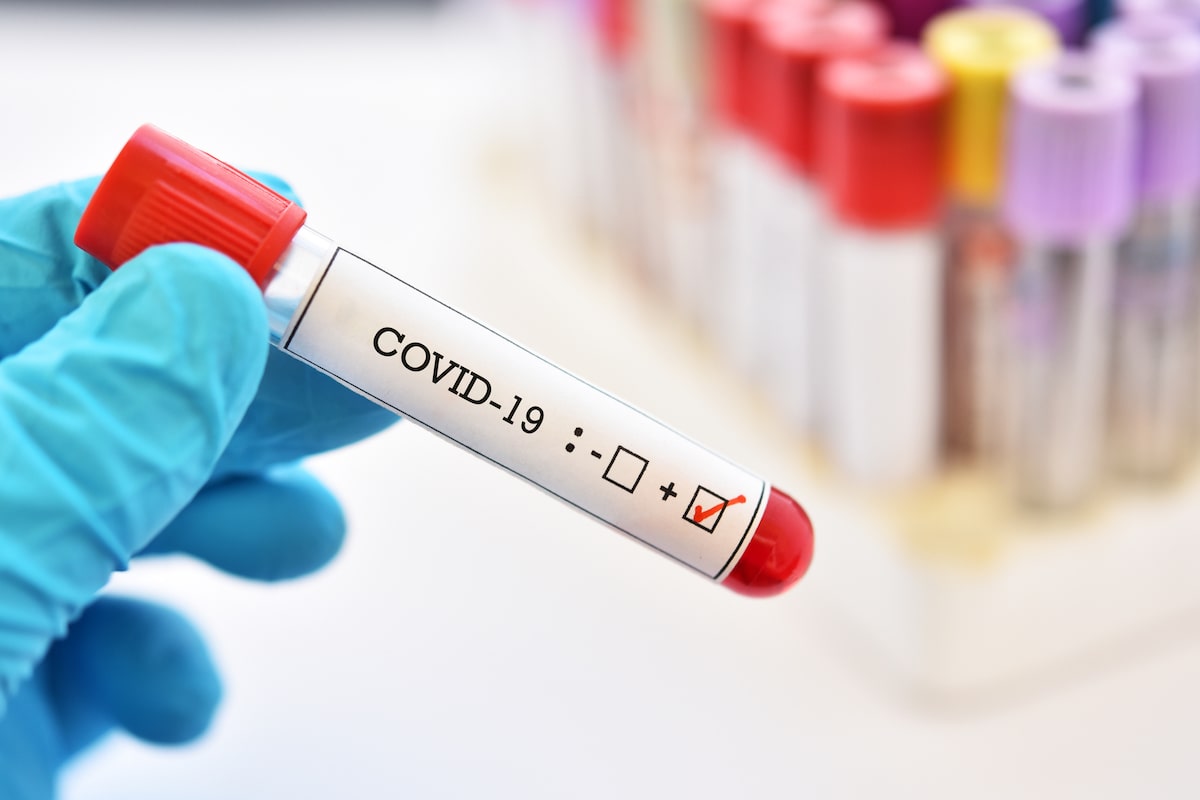<< Back
What You Need To Know If You’ve Tested Positive For COVID-19

July 17, 2020
In the United States, several million people have tested positive for COVID-19 so far. If you are one of millions who receive a positive test result, you may have questions about what to expect and what actions to take. Here’s what you need to know.
Watch for red flags.
COVID-19 affects everyone differently. Some people experience mild symptoms that can be safely managed at home, while others experience severe symptoms and life-threatening complications. If you’ve tested positive for COVID-19, make sure you’re watching for the red flags that indicate you need immediate medical attention.
If you experience shortness of breath, dizziness, weakness, confusion, or if you develop pale or bluish lips or nail beds, go immediately to the closest emergency department or call 911. The sooner you get care, the higher your chances are of survival.
Isolate for at least 10 days.
Quarantine is used to keep people who may have been exposed to the virus away from everyone else. Isolation is used to keep people who have tested positive for the virus away from people who don’t have the virus.
If you have tested positive for COVID-19, it’s imperative that you isolate yourself, even if your symptoms are mild or if you’re not experiencing any symptoms at all.
If you share your living space with others, the Centers for Disease Control (CDC) recommends that you designate a “sick room” for yourself that you don’t share with anyone else, and try to use a separate bathroom. Have as little contact with others as possible. And if you do need to leave your room for any reason, wear a mask.
The CDC guidelines state that you should isolate until you’ve gone at least 72 hours without a fever, your respiratory symptoms have improved, AND it’s been at least 10 days since your symptoms first appeared. If you’re asymptomatic, isolate for 10 days after you’ve received a positive test result.
If you follow these guidelines, you do not need to have a repeat COVID test performed, though some employers require frontline employees to have a negative repeat test before returning to work to ensure they are no longer contagious.
Stay well-nourished and well-hydrated.
Staying well-nourished and well-hydrated can help you recover faster and can decrease your risk of complications that can arise as your body fights the virus.
Make sure you’re eating nutritious food that contains protein, healthy fats, complex carbohydrates, vitamins and minerals. If you lose your appetite, which is common for COVID-19 patients, try “grazing,” which entails eating smaller meals at frequent intervals.
Make sure you stay hydrated by drinking plenty of fluids. Anything without alcohol or caffeine counts toward your fluid intake. If you’re experiencing vomiting or diarrhea, consider drinking fluids that contain electrolytes. You’re likely well-hydrated if you’re urinating at least every 4-6 hours, and your urine is pale yellow.
Another important way to stay hydrated is to take a fever-reducer if you have a fever, since water evaporates faster off the surface of your skin when your temperature is elevated.
Notify close contacts.
If you test positive for COVID-19, it’s important to notify people that you were in close contact with 2 days before your symptoms appeared or, if you’re asymptomatic, 2 days before your COVID-19 test was performed.
The CDC defines a “close contact” as someone you were within 6 feet of for 15 minutes or more. These contacts should get tested for COVID-19 as soon as possible, and quarantine until they receive their test result. If testing is unavailable, they should quarantine for 14 days.
Have patience with the recovery process.
What we know from COVID-19 patients so far is that even if they didn’t have severe symptoms that required hospitalization, it can still take weeks or months for the symptoms of the virus to resolve. Symptoms that can linger include cough, decreased lung capacity, fatigue and loss of taste or smell. These symptoms often improve or resolve over time, but it’s important to have patience with the process and give your body the rest, nutrition and time it needs to recover.
Consider having antibody testing done.
An antibody is a protein produced by your immune system in response to an infection. Antibodies appear in the blood approximately 14 days after an infection.
When it comes to COVID-19, there are a few caveats about antibody testing. First, not everyone who recovers from the virus develops detectable antibodies. And second, it’s not clear how long COVID-19 antibodies last, or how protective they are against future infections.
That being said, you might consider having antibody testing because if you do have antibodies, you may be eligible to donate plasma that can be used to help patients who are experiencing life-threatening complications from the virus.
Click here to schedule a virtual visit with a Hartford HealthCare-GoHealth Urgent care provider. Find out more about COVID-19 antibody tests here.